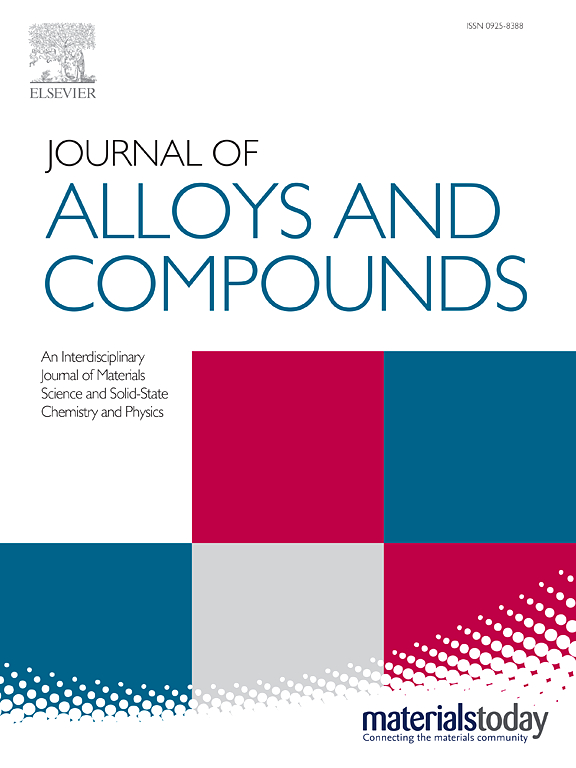Study on the fabrication of UV LED based on Au/i-AlN/n-GaN structure and the effect of operating temperature on the carrier transmission and electroluminescence characteristics
IF 5.8
2区 材料科学
Q2 CHEMISTRY, PHYSICAL
引用次数: 0
Abstract
GaN-based light-emitting diodes (LEDs) have important applications in medical diagnostics, sterilization, and other fields. However, the mismatch of p-type materials usually makes it difficult for conventional pn-type GaN-based LEDs to obtain pure ultraviolet (UV) emission. In this paper, a series of metal-insulator-semiconductor (MIS)-type diodes with Au/i-AlN/n-GaN structure were prepared by varying the deposition time of AlN films, and the effects of ambient temperature on their electrical and electroluminescence (EL) properties were investigated. The Au/i-AlN/n-GaN diode achieved high-purity UV emission, and the device had the lowest turn-on voltage and the strongest EL intensity when the deposition time of AlN is 40 min. In addition, the effect of ambient temperature on the EL performance of the MIS-type LED was investigated, and the emission was attenuated due to thermal effects at temperatures above 40℃. Finally, we clarified the source of holes from the energy band structure and discussed the luminescence mechanism of the device. The results show that the MIS structure is an attractive choice to effectively realize the UV emission of GaN-based LEDs.基于金/i-AlN/n-GaN 结构的紫外发光二极管的制造及工作温度对载流子传输和电致发光特性的影响研究
氮化镓基发光二极管(LED)在医疗诊断、消毒等领域有着重要的应用。然而,由于 p 型材料的不匹配,传统的 pn 型氮化镓基发光二极管通常难以获得纯紫外线(UV)发射。本文通过改变 AlN 薄膜的沉积时间,制备了一系列具有 Au/i-AlN/n-GaN 结构的金属绝缘体半导体(MIS)型二极管,并研究了环境温度对其电学和电致发光(EL)特性的影响。当 AlN 的沉积时间为 40 分钟时,Au/i-AlN/n-GaN 二极管实现了高纯度的紫外发射,该器件的开启电压最低,电致发光强度最强。此外,我们还研究了环境温度对 MIS 型发光二极管电致发光性能的影响,结果表明,在温度高于 40℃ 时,由于热效应,发射会减弱。最后,我们从能带结构上阐明了空穴的来源,并讨论了该器件的发光机理。结果表明,MIS 结构是有效实现氮化镓基发光二极管紫外发射的一个有吸引力的选择。
本文章由计算机程序翻译,如有差异,请以英文原文为准。
求助全文
约1分钟内获得全文
求助全文
来源期刊

Journal of Alloys and Compounds
工程技术-材料科学:综合
CiteScore
11.10
自引率
14.50%
发文量
5146
审稿时长
67 days
期刊介绍:
The Journal of Alloys and Compounds is intended to serve as an international medium for the publication of work on solid materials comprising compounds as well as alloys. Its great strength lies in the diversity of discipline which it encompasses, drawing together results from materials science, solid-state chemistry and physics.
 求助内容:
求助内容: 应助结果提醒方式:
应助结果提醒方式:


